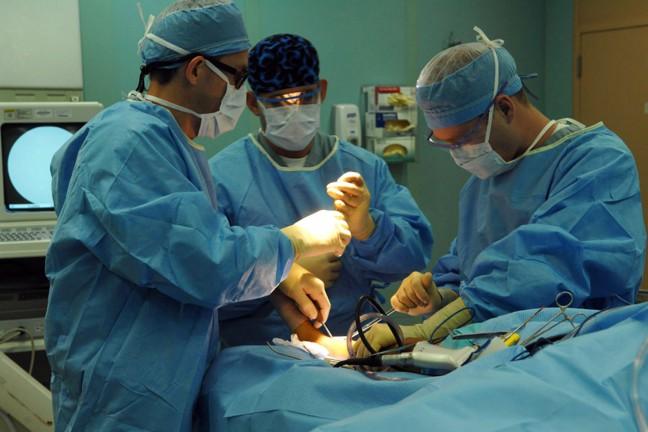Legislation introduced in mid-January would create a requirement for hospitals and surgical centers to offer patients the option to have their surgical procedures and discharge instructions videotaped.
Under the bill, surgical facilities would be required to provide video equipment and recording services with audio and color video. Facilities would treat the taped procedures as confidential patient health care records subject to the same protections as any other medical recording. This means facilities would be subject to criminal and civil punishment for tampering with or disclosing the material.
Wisconsin lawmaker introduces legislation to increase transparency in pharmaceutical industry
The bill’s author state Rep. Christine Sinicki, D-Milwaukee, believes the legislation would increase transparency of information and occurrences in operating rooms. The bill would help ensure patients, doctors and families have accurate documentation if things were to go wrong during surgery.
“Just like everything else in our lives is documented and recorded, so will operations and discharge instructions,” Sinicki said. “I do believe this is the future of medical records.”
Sinicki became aware of the need for such medical recordings when her friend’s sister left a simple cosmetic surgery in a coma and died three months later because of errors made during her procedure, Sinicki said.
Sinicki is aware tragedies such as this are quite rare but said Wisconsin and other states have had similar cases.
Given the lack of documentation in operating rooms, obtaining accurate information as to what went wrong during surgery is difficult, Sinicki said.
UW professor aims to help caregivers communicate with doctors
“The goal of this bill is by no means to go after bad doctors,” Sinicki said. “The goal is to give families of patients who may have had a surgery go wrong some answers.”
Families are often left with only verbal statements from the doctors who performed the surgery and closure is rarely realized, Sinicki said.
Sinicki noted opponents of this legislation are wary of the logistics involved with recording a medical procedure.
“We are talking about stationary cameras in a corner of the room,” Sinicki said. “These cameras would not capture the whole surgery in detail, but enough to give families closure if something were to go wrong.”
Sinicki is aware not all mistakes or tragic outcomes in healthcare are preventable. This bill, however, would create the opportunity to record procedures to either identify a possible human error or demonstrate that medical professionals did nothing wrong, she said.
But Wisconsin Medical Society CEO Bud Chumbley voiced a different concern. Wisconsin Medical Society and the Association of Wisconsin Surgery Centers, Inc. both oppose the legislation.
Though Chumbley said cameras in an operating room can be an “educational opportunity,” he is concerned the cameras will reduce communication among those involved with the surgery.
“Cameras in operating rooms can be educational opportunities — as long as everyone involved is aware that’s the goal,” Chumbley said. “Mandates like this can actually reduce communication among the surgical team, leading to unintended consequences — the exact opposite of what you want when promoting high-quality care.”
UW professors advocate for more patient empowerment, awareness in medical fields
But Sinicki believes digital medical records would protect both patients and doctors.
Sinicki’s hope is this bill starts a “much-needed” conversation.
“I’m proud to have introduced this common-sense protection,” Sinicki said. “These confidential, digital medical records would protect doctors and patients alike and make it easier to get the facts when something goes wrong during a health care procedure.”













